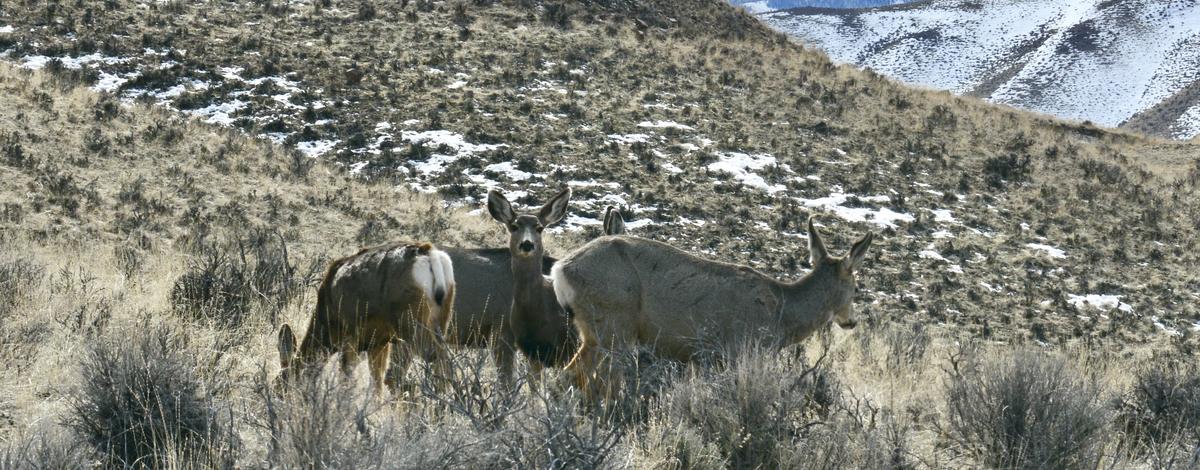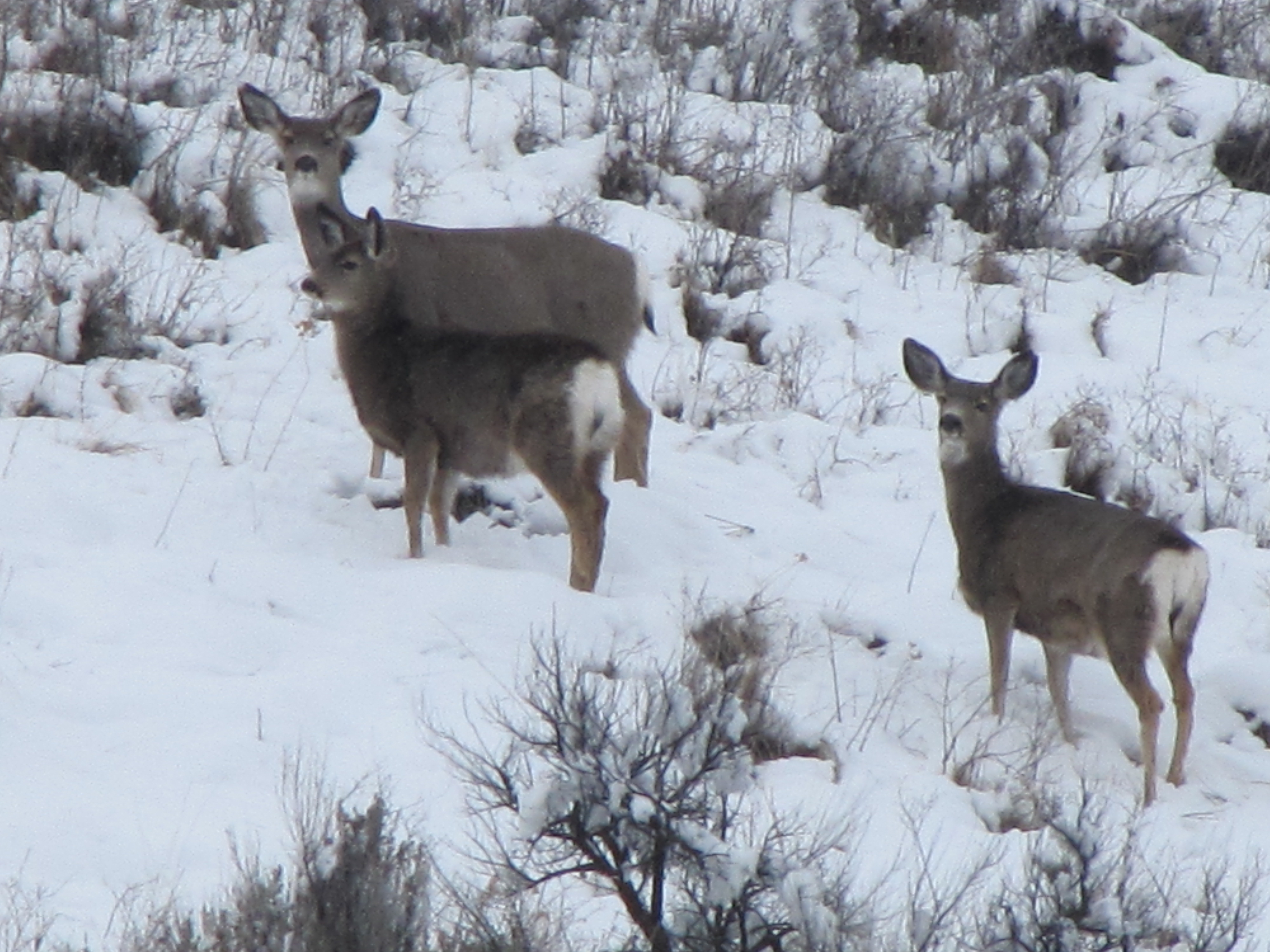As the daytime temperatures start to warm in April, Idahoans are anxiously looking forward to spending time in the sunshine, often walking their dogs while exploring the opportunities that warmer spring weather brings.
However, when lingering winter weather extends into spring and an abundance of snow is yet to melt, Idaho Fish and Game is reminding recreational users that late winter and early spring can still be extremely difficult for wildlife.
Deer and elk have been surviving for months on the fat reserves that they accumulated the prior year, and those reserves are now depleted after a long, cold and snow-filled winter. Even when the snow starts to melt, it’s not the end of the wintertime struggles for these animals, as it still can take several weeks before new spring growth starts to grow and is available for wildlife.


